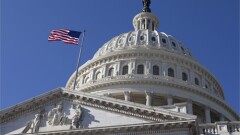Dimon’s letter includes a roundup of broader economic problems facing the country — along with some potential solutions.
“Our shortcomings in these areas clearly have impeded the prosperity of the U.S. economy and have failed many of our fellow citizens over the past two decades or so,” he writes.
The problems he highlights are expansive, including an “ineffective and out-of-touch” educational system, “soaring” costs for health care and crumbling infrastructure. He also cites “irrational” student lending and debt, “frustrating” immigration policies, declining labor force participation, “excessive” regulation and poor government budgeting and planning, among other challenges for the country.
“If I were king for a day, I would always have a competitive business tax system and invest in infrastructure and education as a sine qua non to maximize the long-term health and growth of our economy and our citizens,” Dimon writes. “I would not trade these issues off — I would figure out a way to properly pay for them.”
Broadly, he calls for fundamental reforms to the political system, asking Republicans and Democrats alike to consider the other’s perspective and agree on a set of effective, common-sense solutions to shoring uo the safety net for the elderly, sick and poor, improving education and repairing infrastructure.
He called it a "Marshall Plan for America," and to pay for it all, Dimon suggested raising taxes on wealthy individuals — so long as the money pays for programs that work.
"If we can demonstrate we are spending money wisely, we should spend more," he wrote.
Under the Marshall Plan, known formally as the European Recovery Program and spearheaded by Secretary of State George C. Marshall, the United States spent about $13 billion to help Western European nations recover from the devastation of World War II.
Dimon also encourages various groups, including government agencies and corporations, to “set aside narrow self-interest” when backing legislative and regulatory proposals.
“While leaders obviously fight for their institutions, we all need to be able to advocate for policies that are good for our organizations without being bad for our country,” he notes.
But he offers specifics as well. On education, Dimon lends support for mandatory preschool and further calls for high schools and community colleges to “work with local businesses to create specific skills training programs, internships and apprenticeships that prepare graduating students to be job-ready — whether they go on to earn a credential, to work or to attend college.”
He lists a series of potential fixes for the bloated health care system, such as more transparent plan pricing, affordable end-of-life care and improved corporate wellness programs, with a focus on obesity and smoking. He suggests that small-business licensing should be simplified and urges governments at all levels to conduct transparent, multiyear budgeting and planning exercises.
“When the government says it is going to spend money, it should tell the American people what the expected outcome is and report on it,” Dimon says. “It should account for loans the same way the private sector does, and it should be required to do cost-benefit analysis.”














